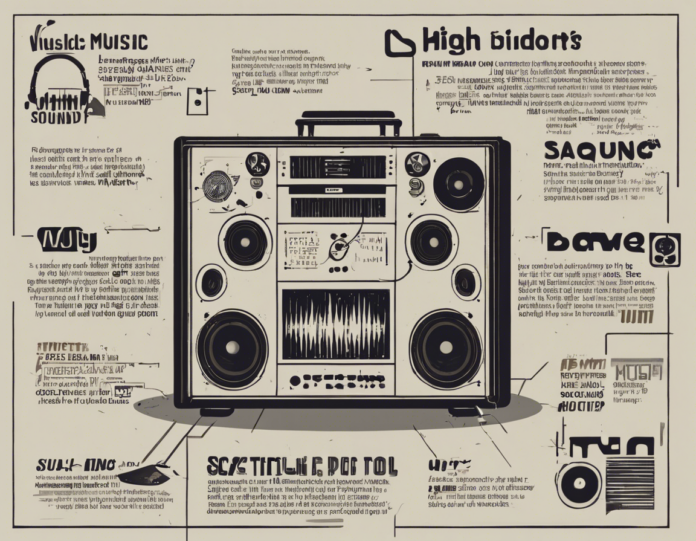Music has been a fundamental part of human culture for centuries, captivating our emotions and enhancing our experiences. Many people have reported that music sounds more profound and moving when they are high on substances like marijuana or alcohol. This phenomenon has intrigued scientists and music lovers alike, leading to research on the fascinating relationship between music and altered states of consciousness.
The Link Between Music and the Brain
Music is processed in multiple areas of the brain, including the auditory cortex, temporal lobes, and frontal lobes. When we listen to music, our brains release dopamine, a neurotransmitter associated with pleasure and reward. This feel-good chemical is also involved in the brain’s response to drugs. When under the influence of substances, the brain’s reward system is altered, heightening the sensations experienced while listening to music.
Altering Perception and Sensory Processing
Being high can alter the way we perceive time, space, and even our own bodies. This change in perception can lead to a heightened awareness of the nuances in music, such as the different instruments, melodies, and rhythms. The brain’s ability to process sound can also be enhanced, making music sound richer and more detailed than usual.
Heightened Emotional Connection
Music has the power to evoke strong emotions, and when combined with the altered emotional state induced by substances, the emotional impact of music can be magnified. Songs that may have seemed ordinary before can suddenly feel deeply profound and moving. This intensified emotional connection to music can create a more immersive and transcendent experience for the listener.
Enhanced Creativity and Expression
Substances have been known to lower inhibitions and stimulate creativity. When listening to music while high, individuals may feel more inclined to express themselves through art, dance, or other creative outlets. The synergistic effect of music and substances can inspire new ideas and creative endeavors, leading to a deeper exploration of self-expression.
Synesthesia and Multisensory Experiences
Synesthesia is a neurological phenomenon where stimulation of one sensory pathway leads to automatic, involuntary experiences in another sensory pathway. When high, individuals may be more prone to synesthetic experiences, where they perceive music not only as sound but also as visual shapes, colors, or textures. This blending of sensory perceptions can make music feel more immersive and multidimensional.
The Role of Expectations and Context
Expectations and context play a significant role in how we perceive music while high. If an individual anticipates that music will sound more profound or enjoyable under the influence of substances, their expectations can influence their subjective experience. Additionally, the setting in which music is listened to, such as a live concert or a cozy home environment, can impact how music is perceived while high.
Risks and Considerations
While the experience of music may be enhanced while high, it’s essential to consider the potential risks and drawbacks of combining substances with music. Substance abuse can have detrimental effects on mental and physical health, and relying on drugs or alcohol to enjoy music can lead to dependency and addiction. It’s crucial to enjoy music mindfully and responsibly, seeking healthy and sustainable ways to appreciate its beauty and power.
Conclusion
In conclusion, the phenomenon of music sounding better when high is a complex interplay of neurological, emotional, and psychological factors. The altering of consciousness brought on by substances can enhance our perception and appreciation of music, leading to a more profound and immersive listening experience. However, it’s essential to approach this phenomenon with caution and awareness, prioritizing self-care and responsibility in our relationship with music and substances.
Frequently Asked Questions (FAQs)
1. Can listening to music while high enhance creativity?
Yes, being high can lower inhibitions and stimulate creativity, leading to enhanced expression through music, art, and other creative outlets.
2. Why does music sound more emotionally impactful when high?
The altered emotional state induced by substances can amplify the emotional connection to music, making it feel more profound and moving.
3. Does synesthesia play a role in how music is perceived while high?
While high, individuals may be more prone to synesthetic experiences, perceiving music not only as sound but also as visual shapes, colors, or textures.
4. Are there risks associated with combining substances with music?
Yes, substance abuse can have detrimental effects on mental and physical health. It’s crucial to enjoy music mindfully and responsibly.
5. How can expectations and context influence the experience of music while high?
Expectations and context can impact how music is perceived while high. Anticipating a more profound experience can influence the subjective enjoyment of music.












